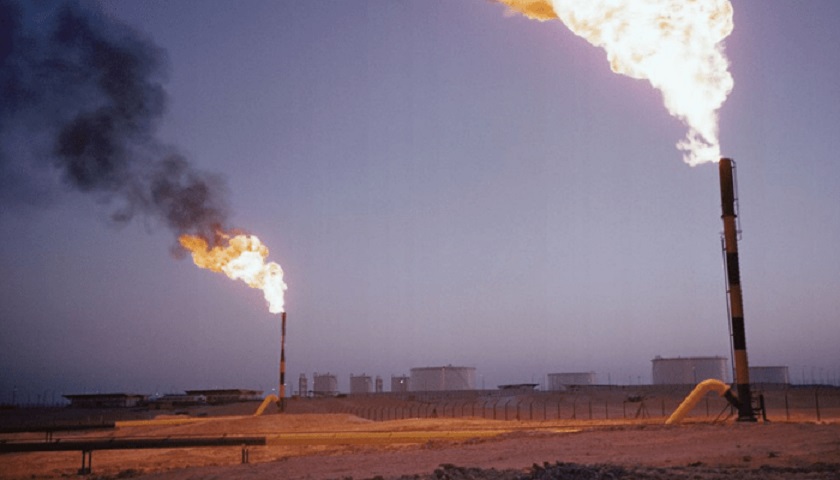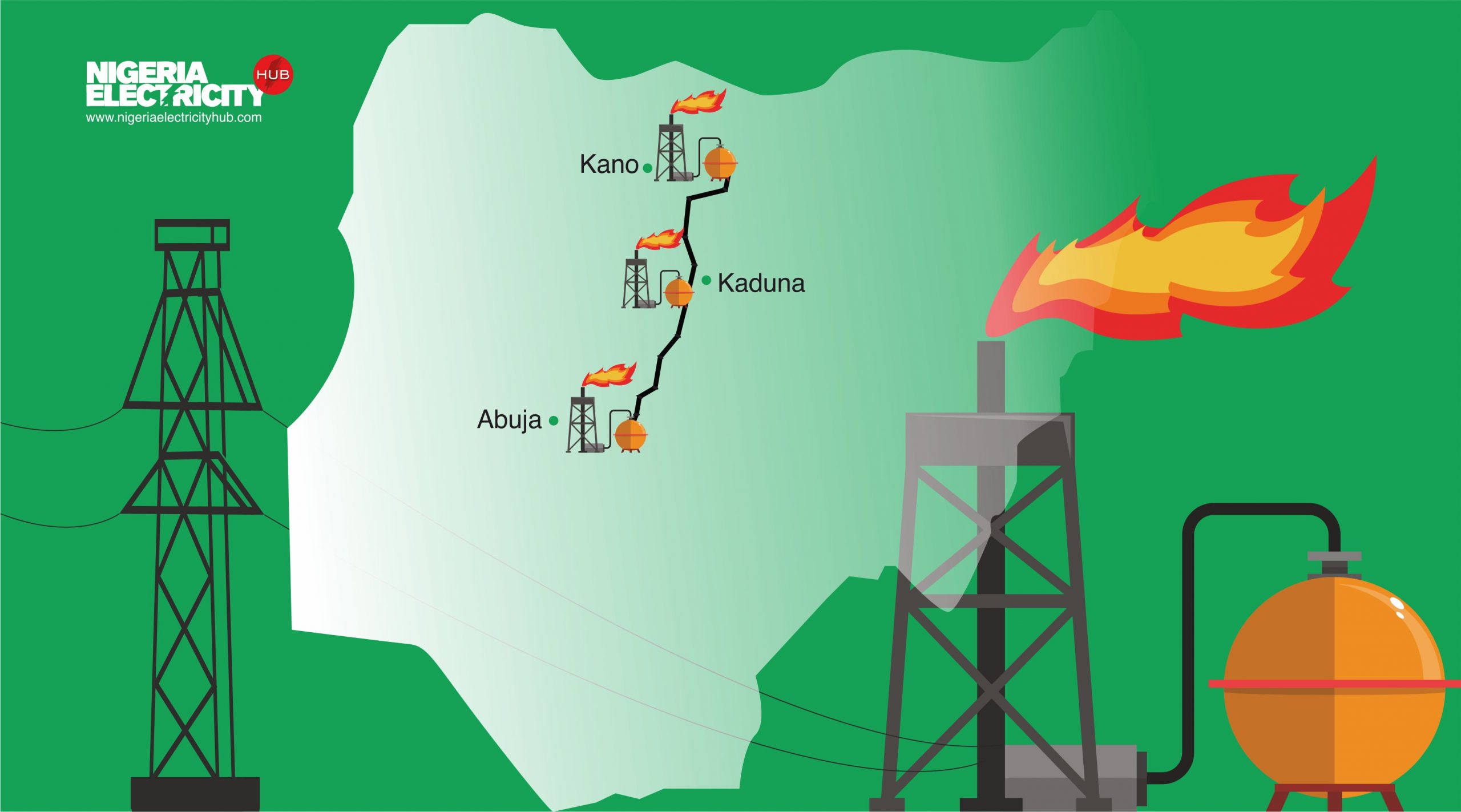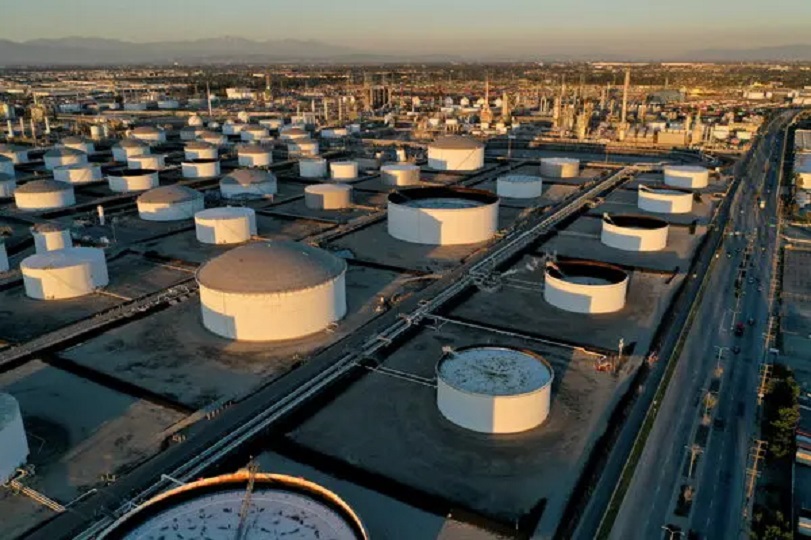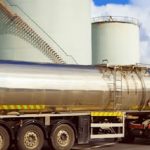General
Former UN Envoy Urges Africa to Shun Pressure, Utilise Gas Reserves

By Adedapo Adesanya
The former United Nations (UN) climate envoy, Ms Mary Robinson, has advised African countries to exploit their vast natural gas reserves amid an urgent need to cut global greenhouse gas emissions.
Ms Robinson, the chair of the Elders group of former world statespeople and business leaders, said African nation’s need for energy was so great that they should use gas widely.
This assertion is in contrast to developed countries’ position that they must halt their gas use as quickly as possible to stave off climate breakdown.
Speaking to the Guardian UK in an interview, she said, “Africa is trying to get its voice out about its needs for just, equitable energy, and of course, that implies some use of gas as a just transition.”
She pointed to the 600 million people in Africa without access to electricity and the 900 million who use biomass or dirty oil cooking stoves, who could use gas as a less polluting alternative.
“There has to be a certain leeway to tackle the energy poverty in Africa, and give Africa a faster capability to move,” she said.
She said European countries and the United States, which are still heavily reliant on fossil fuels, had no basis on which to advise African countries to leave their reserves alone.
African leaders will bring forward similar arguments ahead of COP27 in Sharm el-Sheikh in November, which is certain to make the issue a flashpoint at the UN climate summit that is seen as a chance for African countries to gain global attention for their vulnerability to the climate crisis, and their economic potential.
While some back the idea that African gas can be exploited while the European Union and developed countries find green alternatives, others see an African dash for gas as a potential disaster.
With gas prices high and likely to remain so, and with most of Africa’s potential reserves owned or licensed by foreign companies, it would be difficult to keep African gas on the continent, rather than sell to the highest bidder.
Proponents like Nigeria have instead called for a smooth transition to achieve zero per cent emission within 30 years meaning that 90 per cent of our source of energy has to come from renewables.
General
$1.126bn Financing for Lagos-Calabar Coastal Highway Excites Tinubu

By Modupe Gbadeyanka
The successful closing of about $1.126 billion in financing for the execution of Phase 1, Section 2 of the Lagos–Calabar Coastal Highway has been welcomed by President Bola Tinubu.
A statement issued on Friday by the Special Adviser to the President on Information and Strategy, Mr Bayo Onanuga, disclosed that the funding package was secured by the Federal Ministry of Finance.
Mr Tinubu described this as a landmark because it marks a significant milestone in the delivery of Africa’s most ambitious and transformative infrastructure projects.
He praised the Ministries of Finance and Works and the Debt Management Office (DMO) for working together on the transaction, adding that the federal government will continue to explore creative financing to fund critical projects across the country.
“This is a major achievement, and closing this transaction means the Lagos-Calabar Coastal Highway will continue unimpeded. Our administration will continue to explore available funding opportunities to execute critical economic and priority infrastructural projects across the country,” the President was quoted as saying in the statement.
Phase 1, Section 2 covers approximately 55.7 kilometres, connecting Eleko in Lekki to Ode-Omi, key economic corridors and significantly enhancing national trade efficiency and logistics connectivity.
The successful financing follows the earlier closing of the $747 million financing for Phase 1, Section 1, and demonstrates the scalability and bankability of the Lagos–Calabar Coastal Highway project.
The financing was fully underwritten by First Abu Dhabi Bank (FAB) and Afreximbank, with partial risk mitigation support provided by the Islamic Corporation for the Insurance of Investment and Export Credit (ICIEC), marking ICIEC’s largest transaction since the country’s institutional and regulatory reforms. The structure reflects growing confidence in Nigeria’s reformed investment climate and its capacity to deliver infrastructure.
SkyKapital acted as Lead Financial Advisor, coordinating structuring, lender engagement, and execution. Environmental and Social advisory services were provided by Earth Active (UK), ensuring complete alignment with the IFC Performance Standards, the Equator Principles, and international ESG best practices. Hogan Lovells, as International Counsel, and Templars, as Nigerian Legal Counsel, led the legal advisory services.
Describing the transaction as a “defining moment in Nigeria’s infrastructure journey,” the Minister of Finance and Coordinating Minister of the Economy, Mr Wale Edun, said the fund will be deployed responsibly and judiciously to deliver on the project within timelines.
“The signing on December 19, 2025, of $1.126 billion financing for Phase one — section two of the Lagos-Calabar Coastal road marks a defining moment in Nigeria’s infrastructure journey, following the successful closing of the $747 million financing for Phase one section one on July 9, 2025.
“Collectively, these landmark transactions firmly establish the Lagos-Calabar Coastal Highway as one of the defining flagship projects of President Bola Tinubu’s Renewed Hope agenda, embodying the administration’s commitment to bold, transformational infrastructure.
“This financing is particularly notable as it represents, for the first time, a truly underwritten transaction of this magnitude for a Nigerian road infrastructure project. The facility was fully underwritten by First Abu Dhabi Bank ($626 million) and Afreximbank ($500 million), with partial coverage provided by ICIEC, making it the largest ICIEC-supported transaction since the institution’s creation,” Mr Edun said.
Construction is being executed by Hitech Construction Company Limited, whose rapid on-site progress and early opening of key road sections have earned commendation from lenders for engineering excellence, operational discipline, and execution speed.
In line with the federal government’s commitment to transparency and fiscal discipline, a comprehensive Value-for-Money (VfM) assessment was conducted by the Federal Ministry of Works in coordination with SkyKapital, and the assessment was independently reviewed and confirmed by GIBB.
The successful close of Phase 1, Section 2, represents a clear step-change in market confidence. It demonstrates Nigeria’s ability to move decisively from vision to execution and from reform to delivery.
General
Ekpo Lauds NNPC Over Completion of AKK Mainline Works

By Adedapo Adesanya
The Minister of State for Petroleum Resources (Gas), Mr Ekperikpe Ekpo, has commended the Nigerian National Petroleum Company (NNPC) Limited and its partners for the rapid pace and completion of the mainline welding and associated works of the Ajaokuta–Kaduna–Kano (AKK) gas pipeline ahead of schedule.
The Minister made the remark during a recent inspection of Kilometre Zero of the landmark pipeline project, accompanied by the chief executive officer of the Nigerian state oil company, Mr Bashir Bayo Ojulari, Executive Vice President (Gas, Power, and New Energy) Mr Olalekan Ogunleye, and the managing director of Ajaokuta Steel Company Limited, Mr Nasir Abdulsalam.
“Completing the AKK Mainline ahead of schedule demonstrates the resilience, professionalism, and commitment of the project team,” Mr Ekpo said, describing the milestone as a clear reflection of the Federal Government’s renewed focus on energy infrastructure under President Bola Tinubu’s Renewed Hope Agenda.
The Minister noted that the AKK Gas Pipeline is a strategic national infrastructure poised to drive economic growth across Northern States by supplying natural gas for power generation, supporting gas-based industries, and advancing Compressed Natural Gas (CNG) initiatives.
“This project will enhance industrialisation, create jobs, and strengthen energy security, ushering in a new era of economic opportunities for Nigerians,” he added.
Mr Ekpo concluded by urging all stakeholders to maintain momentum, noting that the AKK Pipeline’s operationalisation will catalyze industrialisation, employment, and inclusive economic growth, aligning with the Federal Government’s broader strategic vision.
Speaking at the site, Mr Ojulari linked the project to tangible national development, highlighting Nigeria’s industrial heritage while projecting a resurgence driven by gas as a transition fuel.
“The AKK Pipeline reflects our commitment to timely project delivery and its strategic importance to national industrialisation and economic security,” he stated.
The inspection tour, according to him, further reinforced the Federal Government and NNPCL’s pledge to ensure the AKK Pipeline’s timely completion, which remains critical to expanding energy access, boosting industrial growth, and supporting shared prosperity across the country.
The Minister and the NNPC management team commended the project workforce for their dedication, emphasizing the role of discipline, collaboration, and technical excellence in achieving the early completion of this landmark project.
The AKK Gas Pipeline, spanning over 614 kilometers, is designed to deliver natural gas to power plants, industries, and CNG facilities, providing a major boost to Nigeria’s energy infrastructure and positioning the country as a regional energy hub.
General
Nigeria Confirms US Airstrikes On ISWAP Targets in Sokoto

By Adedapo Adesanya
Nigeria’s Ministry of Foreign Affairs has confirmed that the latest United States airstrikes on Islamic State West African Province (ISWAP) targets in northwest Nigeria were conducted at the request of the Nigerian government.
According to reports, the US struck at ISWAP targets in Jabo, Sokoto State, on Christmas night.
The ministry described the operation as a product of established counterterrorism cooperation between both countries.
In a press statement issued on Friday, the Ministry said the strikes were “undertaken following formal engagement and with the full knowledge and coordination of the Government of the Federal Republic of Nigeria.”
“The Government of Nigeria wishes to clarify that the airstrikes conducted by the United States against Islamic State elements in parts of northwest Nigeria were carried out at the request of Nigerian authorities and in line with existing bilateral security cooperation frameworks,” the statement said.
The Ministry stressed that Nigeria “remains firmly in control of all counterterrorism operations within its sovereign territory,” adding that international partners only provide support “where such assistance aligns with Nigeria’s national security objectives.”
According to the statement, the strikes form part of Nigeria’s broader strategy to “degrade terrorist capabilities, disrupt logistics networks, and protect civilian populations from violent extremist threats.”
The Foreign Ministry further emphasised that the federal government “will continue to work with trusted international partners to confront terrorism, banditry, and transnational criminal networks that threaten national and regional stability.”
Reacting to concerns around sovereignty, the Ministry said:
“At no time was Nigeria’s sovereignty compromised. All actions were conducted with due respect for Nigeria’s laws, institutions, and command structures.”
The statement also cautioned against mischaracterising Nigeria’s security challenges, noting that extremist violence “has affected communities across religious and ethnic lines and should not be framed in sectarian terms.”
Nigeria reaffirmed its commitment to a multi-layered response combining military operations, intelligence sharing, community engagement, and socio-economic interventions, adding that counterterrorism efforts remain focused on protecting lives and restoring stability.
The US Africa Command (AFRICOM) said the strikes were carried out in Sokoto State and that multiple militants were killed.
US President Donald Trump described the strikes as “powerful and deadly,” saying they were directed at Islamic State militants responsible for violent attacks on Christians in Nigeria.
The Nigerian government has clearly denied that only Christians are affected by the killings, saying the terror spread across all faiths.
Meanwhile, US Defence Secretary Pete Hegseth has warned that “more to come” as part of sustained efforts against extremist groups.
-

 Feature/OPED6 years ago
Feature/OPED6 years agoDavos was Different this year
-
Travel/Tourism9 years ago
Lagos Seals Western Lodge Hotel In Ikorodu
-

 Showbiz3 years ago
Showbiz3 years agoEstranged Lover Releases Videos of Empress Njamah Bathing
-

 Banking8 years ago
Banking8 years agoSort Codes of GTBank Branches in Nigeria
-

 Economy3 years ago
Economy3 years agoSubsidy Removal: CNG at N130 Per Litre Cheaper Than Petrol—IPMAN
-

 Banking3 years ago
Banking3 years agoFirst Bank Announces Planned Downtime
-

 Banking3 years ago
Banking3 years agoSort Codes of UBA Branches in Nigeria
-

 Sports3 years ago
Sports3 years agoHighest Paid Nigerian Footballer – How Much Do Nigerian Footballers Earn
















